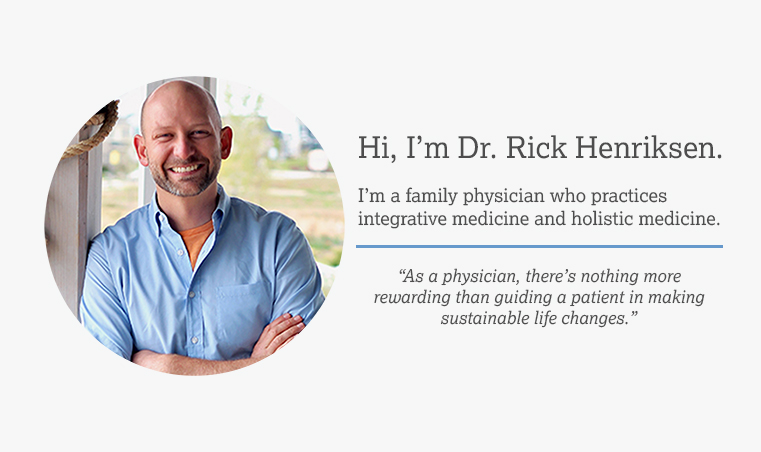Digging Deep with Dr. Henriksen
Brain fog may not be a medical condition but its symptoms can prevent you from concentrating, recalling memories, and can lead to mental fatigue.
We asked SteadyMD Doctor and Whole30 coach, Rick Henriksen, for his insight on brain fog and to learn more about how to treat it.
One of the most common things that I hear people say is that they have brain fog. It’s when they have fuzzy thinking or feel like they’re unable to feel sharp in their thoughts anymore. This is a common thing, but it’s not supposed to be there. It’s not normal and it’s really complicated because it can be caused by a long range of lifestyle problems, medications, or conditions.
What Exactly is Brain Brain Fog?
Brain fog is the inability to have a sharp memory or to lack a sharp focus. You just really feel like you’re not yourself and you’re unable to think clearly. That can encompass a lot of different medical conditions and issues. Together, we can figure out what the root cause is by taking a whole body approach.
° ° ° ° °
The First Step
The first thing we have to do is really try to tease out what’s causing your issues. We can use lab testing to look at your thyroid and gut health, all of which are potential causes of brain fog. We can then sit down and start working through them.
° ° ° ° °
Get More Hours In
What’s the cause? We would have to do blood work and go over a very detailed medical history to figure out what the potential causes may be for you since it’s all relative to your personal lifestyle, diet, and medical history.
One of the most common causes of brain fog is just not sleeping enough. That’s probably one of the #1 lifestyle changes that I can help my patients make to improve their symptoms. Typically, these patients have reduced the number of hours that they sleep and/or they’re parents who are unable to get the amount of sleep that they need.
Not getting enough hours in can affect your ability to function and focus, leading to feeling “foggy.”
If we can increase the number of hours of sleep that you get, sometimes the brain fog will go away. That’s not an easy fix but it’s a fix that doesn’t require any medicine or supplements to improve.
° ° ° ° °
Treatment Options
The treatment – that’s going to be based off of what the cause is. To get the treatment to stick, I prefer to target the treatment to the cause of the brain fog.
As a physician, there’s nothing more rewarding than guiding a patient in making sustainable life changes. At SteadyMD we recommend that you speak to your primary care physician before implementing any lifestyle changes. Talk to your doctor to find the best treatment option for you.
Click here to find out what happens when you sign up with a personal online doctor.
° ° ° ° °
SteadyMD is YOUR personal doctor, online. We pair you with a doctor who is available to you via text, phone, and video chat anytime you need. Click here to take our 90-second quiz and get matched with the right doctor for you based on your individual medical concerns, nutrition, exercise, and lifestyle.

